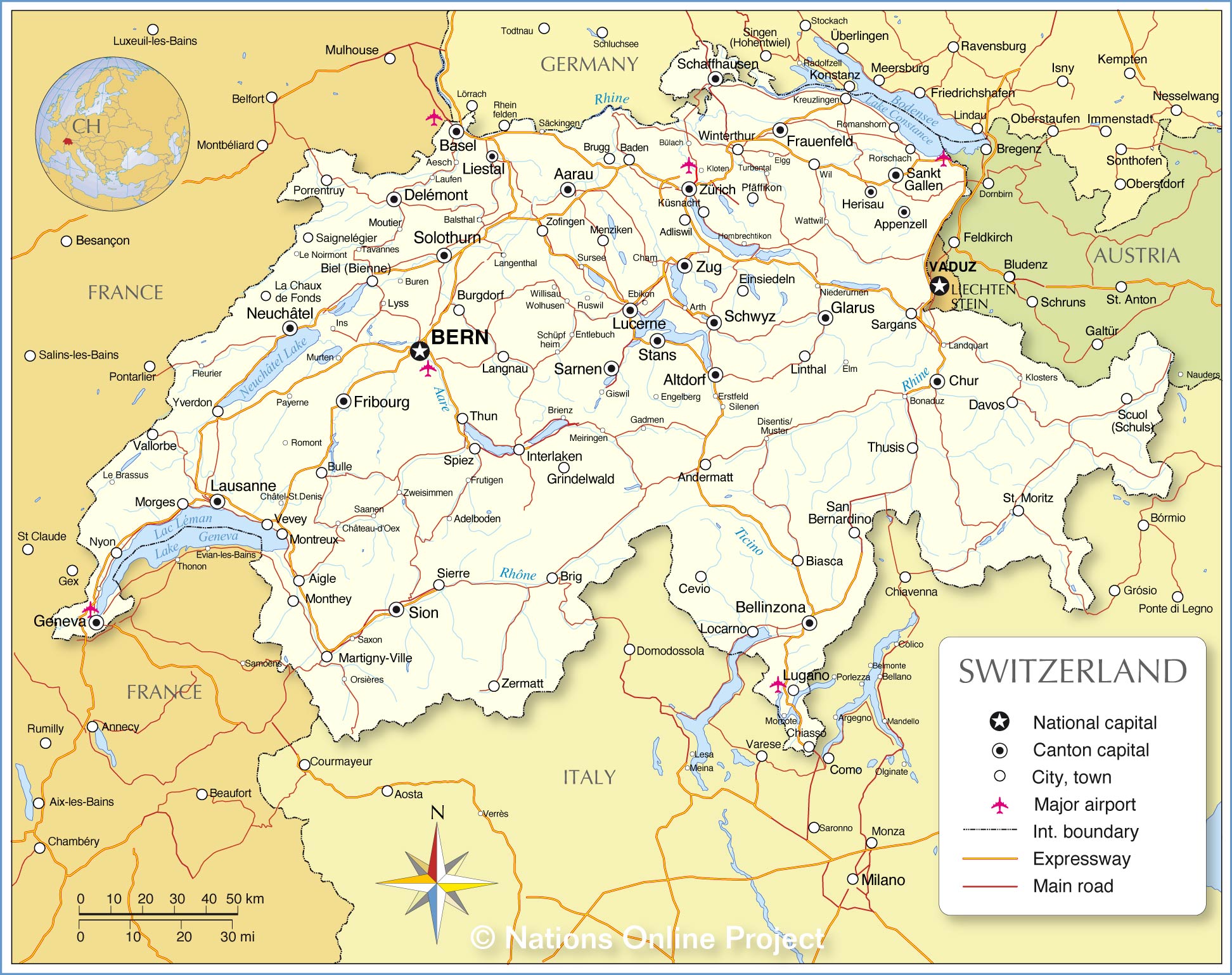
Switzerland is a federal nation made up of 26 federal states. The political system of the nation allows all the cantons to enjoy an equal share of decentralization. The country is known for its exploration of democracy. Switzerland is the country in the world whereby the citizens enjoy direct democracy, whereby they can provide their individual opinions on matters affecting them. Usually, this freedom is exercised severally in a year via regional or national referendums and citizens' initiatives. The country's mode of power-sharing is also unique and excellent. For instance, the government is made of a coalition of four major political parties in the nation. The president is identified as the nation's seven member’s federal council leader and is elected for only a year. Even though the president is the head of the country, the position of mostly ceremonial since the federal council is identified as the highest executive authority (Walter & Emmenegger 2019).
The nation has been much advantaged due to the stability of its political environment. Research has shown that it is one of the safest countries in the entire world. It has remained a politically stable nation in the region, while some of its neighboring countries continue to face political upheavals from time to time. What makes the country even more stable politically is that most voters are loyal to their political parties. Some of the political things that remain a concern for Switzerland's citizens are health insurance, migration, social insurance, climate, and the environment, asylum, and the employment industry (Bruneau, 2016).
Regarding its involvement in international matters, Switzerland is a member of the United Nations, the World Bank, and the International Monetary Fund. However, it has not registered as a member of the European Union and the European Economic Region. Nevertheless, Switzerland has involvement in the European Single Market and the Schengen Agreement. As a result, Switzerland citizens are allowed to live and work in nations signed under the European Union. Also, the country has a good reputation for its neutrality and offerings to international peacekeeping deeds. Nonetheless, its association with the European Union is progressively fragile (Bruneau, 2016).
Economically, Switzerland is known to have one of the biggest economies globally. Drawing from the 2019 statistics, Switzerland had a gross domestic product (GDP) of $703.8 billion, signifying 0.58% of the global economy. However, projections indicate that the GDP will deteriorate in the years 2020 and 2021. However, by 2022, the economy will start growing again (Walter & Emmenegger, 2019). The country's economy is highly represented by a high level of the skilled labor force, which is around 5 million, although the tax rates are low. Besides this, it has a robust buying power with highly established infrastructure and a very steady macro environment (Bruneau, 2016).
Majority of the companies in Switzerland are small and medium enterprises (SMEs). These are firms that have less than 250 workers. Also, they have low public debts, low rates of unemployment, and a booming service sector. Due to this, the nation has emerged as one of the most modest economies globally (Walter & Emmenegger 2019).
The five largest markets in Switzerland are tourism, agriculture, service, banking, and manufacturing. The leading exports of the country are vaccines, jewelry, gold, watches, and packaged medicaments. These products are often exported to different nations globally, such as China, India, and the United States of America. On the other hand, they import products such as cars and packaged medicaments from nations like the United Kingdom and the USA. Due to its efficient banking system, many foreign people save their money in Switzerland banks (Bruneau, 2016).
Download PDF file containing tables (Free)
References
Bruneau, T. (2016). Policy Performance and Governance Capacities in the OECD and EU: Sustainable Governance Indicators 2016.
Walter, A., & Emmenegger, P. (2019). The Partisan Composition of Cantonal Governments in Switzerland, 1848‐2017. A New Data Set. Swiss Political Science Review, 25(1), 1-18.

0
1794